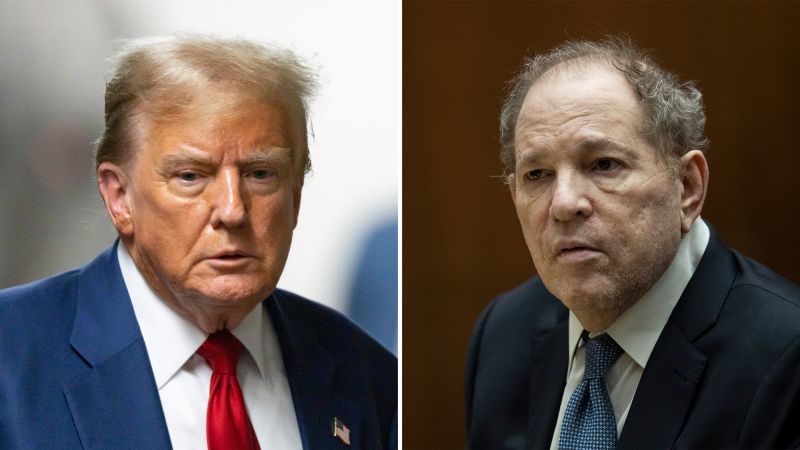
How the overturned Harvey Weinstein conviction could echo in Donald Trump’s hush money trial
CNN
The message from the highest court in the state of New York was clear last week: No matter who they are or how unpopular they might be, defendants are entitled to a fair trial.
The message from the highest court in the state of New York was clear last week: No matter who they are or how unpopular they might be, defendants are entitled to a fair trial. It was the central point in a decision handed by the New York State Court of Appeals overturning Harvey Weinstein’s 2020 rape conviction. The 4-3 ruling concluded that the Weinstein jury was potentially prejudiced against the defendant because the judge allowed women to testify about allegations that were not part of the case, purportedly to prove Weinstein’s intent. “It is our solemn duty to diligently guard these rights regardless of the crime charged, the reputation of the accused, or the pressure to convict,” the majority declared. The appeals court decision centered on two key rulings by the Weinstein court trial judge that it found problematic: his “Molineaux” ruling admitting testimony from three other accusers, and his “Sandoval” ruling permitting prosecutors to ask Weinstein about a host of “loathsome” but irrelevant misconduct if the defendant chose to testify. Some legal observers believe the Weinstein decision could prove relevant as the hush money trial against former President Donald Trump unfolds in Manhattan. Judge Juan Merchan, who is overseeing the trial and making day-by-day decisions about what evidence is allowed in court, is bound to the same guidelines as the Weinstein trial judge. “If I were representing Trump, I would have been in court that very morning waving this decision in front of the judge’s face saying that he needs to reconsider his Molineux and Sandoval ruling,” attorney Douglas Wigdor, who has represented numerous Weinstein accusers, including a Molineux witness who testified during the 2020 trial, told CNN. “I would be seeking a mistrial at this point – they’ve already let in the evidence that the judge had relied on.”













